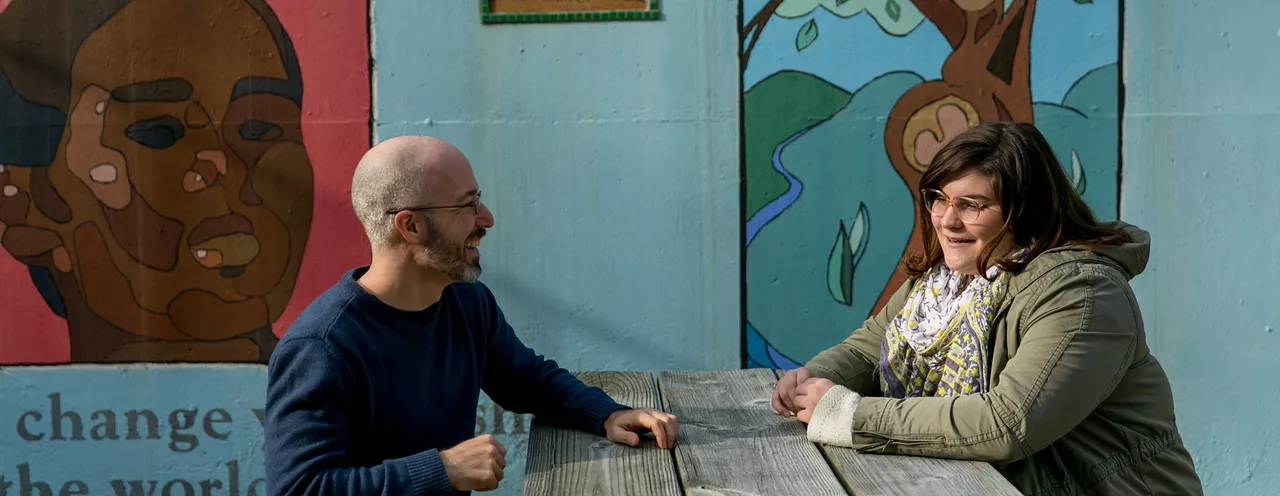
CFWB Fellowship
About The Fellowship
The CFWB Junior Fellowship is designed to explore the integration of practice, research, and policy as a way of deepening students’ capacity to work effectively with children and families across the life cycle. The CFWB integrative seminar meets five times during the academic year. Each of the integrative seminars is two hours and is held online on Saturdays. The integrative seminar is an activity offered by the CFWB and not a course offered for credit as part of the MSS curriculum.
CWEL students are required to participate in the CFWB Junior Fellowship. Students who complete two years as a Junior Fellow will have this milestone noted on their academic transcript. Advanced Standing students who participate for one year must complete a special integrative paper. Click here to complete the Junior Fellow application.
2024-2025 Fellowship Topic
The topic this year will be "Migration and the Family." Economic and environmental crises, as well as wars and violence, have, around the globe, created conditions underlying increased international migration. The UN estimates that the world have 281 million migrated in 2020. For the estimated 38 million migrants who are children (some of whom migrate on their own, others who migrate with their families), the experience of migration lays bare the importance of family in all its forms. Within often extremely trying experiences, parents (or extended family members) must work hard to provide for their family and to ensure children’s basic needs for physical and emotional safety.
Migration also often compromises the systems upon which families depend (including their extended family, their community networks, their school and social services, and local or regional support systems and infrastructure). Yet, in the midst of all these stressors and threats to family well-being, families are often the primary source of constancy and support, and caregivers tend to demonstrate considerable fortitude and creativity in helping their children adapt and supporting the family system. This year, our theme takes on the issue of migration, including its various types, which often blur (e.g., forced, internal, international, economic, involuntary, and voluntary), exploring the implications of migration for child and family well-being. As always, we approach this issue with an eye towards strengths, an approach that spans from micro to macro, and with a range of speakers and activities to build capacity so that social workers may better respond to the needs and potentials of diverse children and families.
Dates for AY 24/25
5 Saturdays, 3 p.m. – 5 p.m., online
- September 21, 2024
- October 26, 2024
- December 7, 2024
- February 22, 2025
- March 22, 2025
- April 19, 2025 (Makeup class if needed)
Past Fellowship Topics
2023-2024: Children and Family Wellbeing: Critical Perspectives on Risk and Resilience
2022-2023: The Impact of War and Political Violence on Children and Families with Special Focus on Factors Associated with Risk and Resilience.
2021-2022: An Exploration of Child/Adolescent Trauma Across Service Systems (e.g. Education, Mental Health, Health, Parental Health and Mental Health)
2020-2021: The Intersection of Child and Family Wellbeing, COVID-19 and Social/Health Disparities Associated with Structural Inequity and Racism
2019-2020: The Intersection of Trauma, Education, and Juvenile Justice
2018-2019: Trauma Informed Social Work and Child Wellbeing: Global Perspectives
2017-2018: ACES (Adverse Childhood Experiences Studies)
2016-2017: Trauma Informed Practice with children, adolescents, and families
2015-2016: Juvenile Justice
Child and Family Wellbeing
300 Airdale Rd
Bryn Mawr
Pennsylvania, 19010
610-520-2607
Fax: 610-520-2655
childandfamily@brynmawr.edu